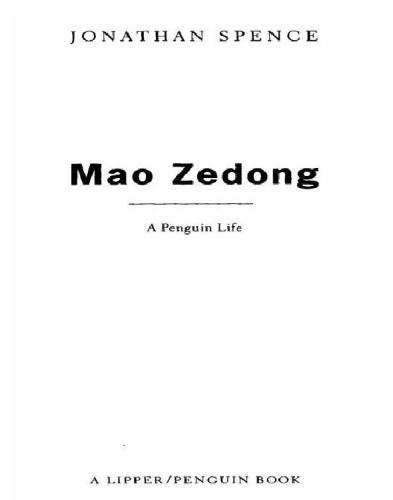
Mao Zedong
A Life
کتاب های مرتبط
- اطلاعات
- نقد و بررسی
- دیدگاه کاربران
نقد و بررسی

October 4, 1999
In the latest of the concise Penguin Lives series, China historian Spence (The Gate of Heavenly Peace, etc.) blends historical facts with cultural analysis, creating a work that is fluid and informative despite its brevity. Portraying an intimate Mao (1893-1976), Spence leaves much of the political commentary to other historians, focusing instead on how a boy from the farm villages of Hunan rose to rule the most populous nation in the world. Spence gives readers a Mao who is smart but not wise, unexceptional in almost all qualities except his "inflexible will" and "ruthless self-confidence." He points out that, even at a young age, Mao's perception of governing foreshadowed much of how he eventually did rule: in an essay written about Lord Shang, a Qin dynasty minister, Mao argued that Shang's rule, considered by historians to be cruel, was just ("At the beginning of anything out of the ordinary, the mass of the people always dislike it"). "I have come," writes Spence, "to think of the enigmatic arena in which Mao seemed most at home as being that of order's opposite, the world of misrule." The shortness of the form enables--or requires--Spence to accelerate the pace of Mao's life, thus adding drama to the sea change in Mao's character from na ve idealist to cunning political infighter and center of a personality cult. The Mao who lingers on the last page is a somewhat diminished, Lear-like figure, estranged from his wife and ultimately unsure of whether his revolution had a future. When Henry Kissinger praised Mao's writings during their famous meeting, the chairman responded: "I think that, generally, people like me sound like a lot of big canons."

























دیدگاه کاربران